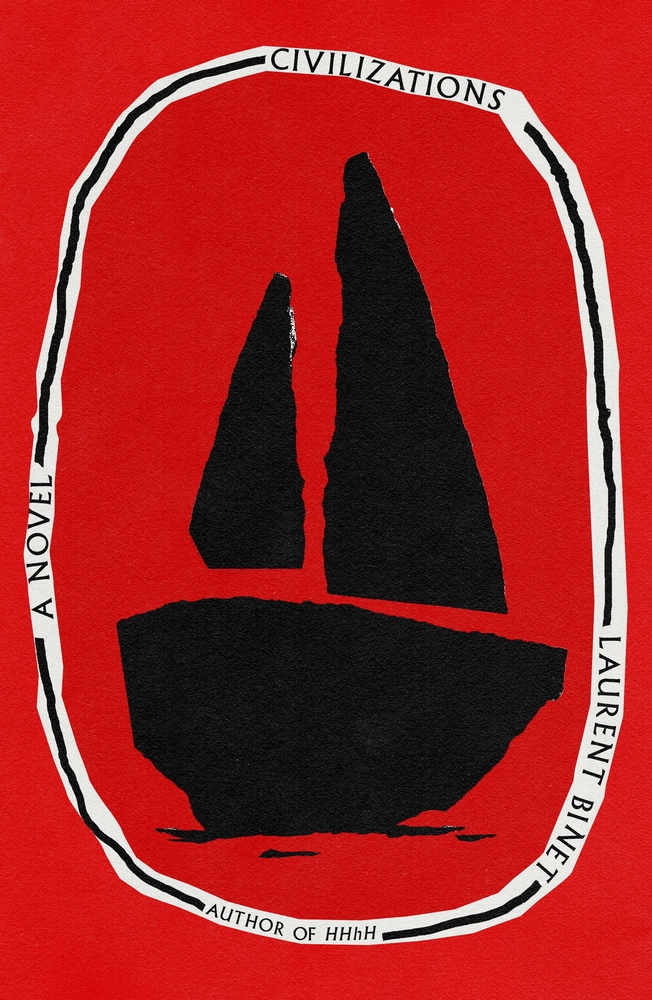 |
| Cover of the yet to be released American edition of Civilization |
Book Review
Civilizations (2021)
by Laurent Binet
One of the amusing facets of international culture markets is the way distribution of new works still follows the geographical borders of nation-states, or "marketing territories." Civilizations, for example, which was translated from French into English, has been out in the UK for half a year, but doesn't come out in the United States till the fall. So while you can buy a copy easily enough on any number of UK websites, you can't read anything about it written in the United States. It's not like it's illegal to write about an English edition of Civilizations, but a casual internet search reveals nothing written on this side of the Atlantic.
Which means I'm left being excited about this book all by myself. If you were to ask me for a list of favorite current authors, Binet would be top three. HHhH is a canon level classic, and The Seventh Function of Language is a great book to recommend to the right person. Other than the people to whom I've recommended The Seventh Function of Language, I haven't met anyone else who has read Binet let alone loves him. And I get the criticisms- mostly from what I would call the literature-as-feelings or literature-as-origin story schools of thought, about Binet not really meaning anything- I get it. But his books are actually fun to read, they make you think, they make you think about the novel as an art form. Like Michel Houellebecq- another French author I love and am vaguely embarrassed to love, Binet is clever, funny, dark and kind of a dick (or at least he comes across that way in interviews).
Civilizations is his take on an alternate history, one where a rogue Incan Prince escapes from a South American civil war, manages to retrofit the ships Columbus abandoned after his expedition failed and sail to a Lisbon that has just been devastated by an earthquake. The mechanism that Binet uses to launch his story is an opening chapter where Freydis, daughter of Eric-the-Red, continues Viking expeditions South, spreading knowledge of iron and inoculating local tribes in the Caribbean and Central America. Thus, when Columbus arrives, the locals have horses and metal weapons, and the Europeans are entertainingly humiliated, with the remnants enslaved by a Caribbean tribe.
Atahualpa, the Incan prince is the central figure in the story. He is engaging figure, and I'm looking forward to the prestige television version of this book hopefully adapted by Taika Waititi. If you read this book, and you just think it's kind of a flip, sarcastic take on the genre of counter-history, I think you are missing the point, and maybe you don't know alot about the time period in question- because, as someone who knows about both areas- American and European history in the 16th century, I thought Civilizations was sharp.

 Instagram
Instagram
No comments:
Post a Comment